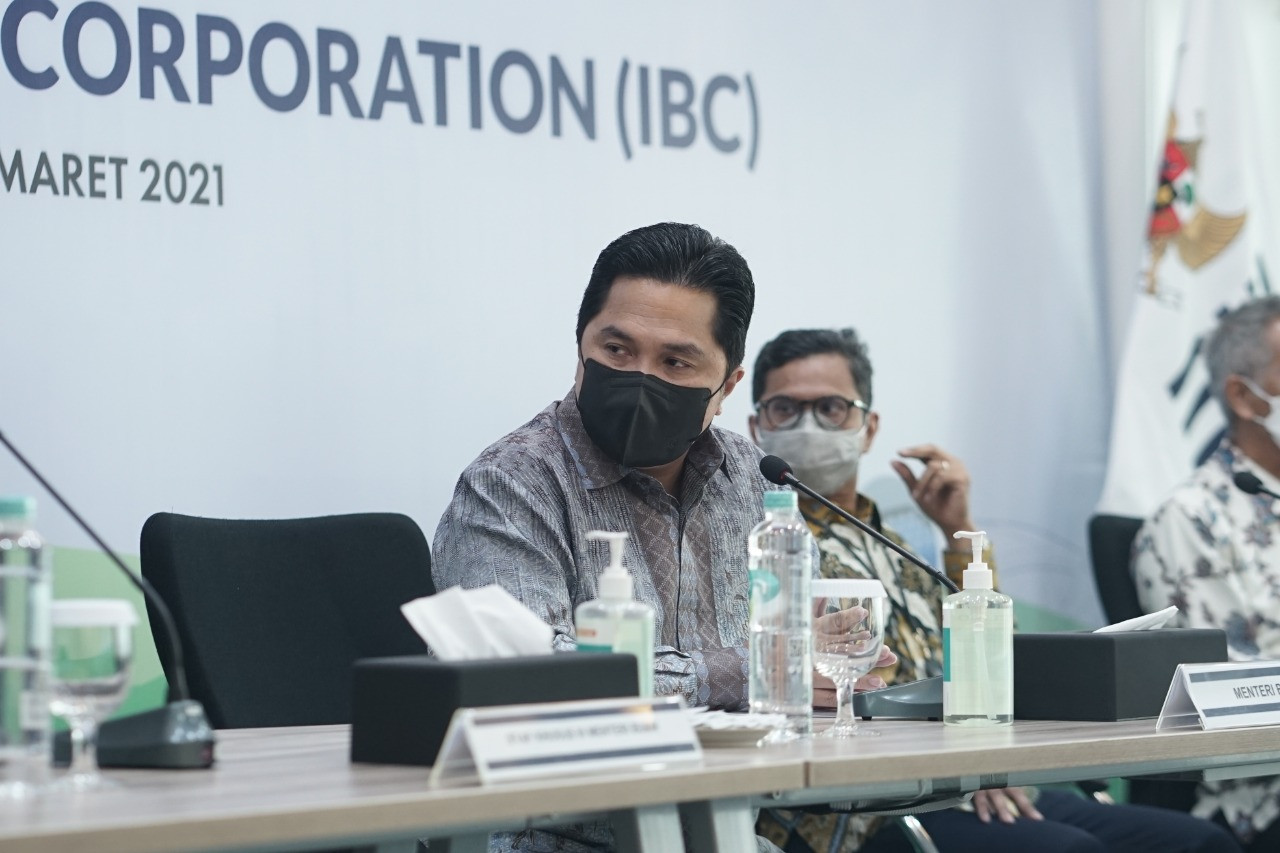Popular Reads
Top Results
Can't find what you're looking for?
View all search resultsPopular Reads
Top Results
Can't find what you're looking for?
View all search resultsEndless, circuitous SOEs reform
While the incumbent SOEs minister has succeeded where his predecessors have failed in setting up industry-specific holding companies, SOEs reform is still trudging through the muck and mire of its long-standing root problem: excessive government intervention.
Change text size
Gift Premium Articles
to Anyone
L
ess than two years since his appointment as the state-owned enterprises (SOEs) minister, Erick Thohir has achieved remarkable progress in consolidating dozens of SOEs under six industry-specific holding companies.
His predecessors had tried to reform Indonesia’s SOEs over the past 20 years by merging them, but succeeded in forming just three holding companies in the cement, plantation and fertilizer industries. This only goes to show how difficult SOEs reform has been amid strong opposition from interest groups in the bureaucracy, trade unions and lawmakers who wanted to maintain SOEs as cash cows.
Theoretically, merging companies of similar business lines under a holding company improves efficiency, creates synergy across production, marketing, procurement and financing, and strengthens internal control.
Pushing SOEs toward issuing initial public offerings (IPOs) is another concerted effort to improve corporate governance, because companies trading on the bourse are subject to stringent disclosure requirements. This in turn increases the transparency of their operations by default. Transparency is one of the foundational principles of good governance, and promoting the highest corporate transparency standards is an important engagement theme for SOEs.
But neither consolidating SOEs under holding companies nor listing them on the stock market will be fully effective in improving their governance and accountability as long as the root problem of excessive government intervention is not resolved.
So far, experience has shown that SOE holding companies remain prone to corruption through the minimal transparency that SOEs practice, as they report very little to the public and most are not independently audited. Meanwhile, many corruption cases have involved the procurement contracts of SOEs.
Worse, several SOEs, buoyed by government fiscal support, are nurturing high ambitions to enter new business lines and thereby crowding out private investors, even though Erick has announced his objective to reduce the number of SOEs from 142 to 40 enterprises and their business lines from 27 to 12.
There are simply too many SOEs, and the government really does not have any business involving itself in so many enterprises that private firm can run efficiently. Worse still, many SOEs have been grossly inefficient as a result of lax internal controls, poor accounting standards and practices, and their high proneness to arbitrary government interference. Indonesia is the only country that governs its SOEs via a Cabinet ministry.
Even the publicly listed SOEs cannot perform as beacons of integrity. Just look at how the board of directors of Garuda Indonesia, now virtually bankrupt, colluded with auditors to cook up its 2018 financial report with artificial earnings of US$800,000 instead of actual losses of $175 million.
Yet Gusti Ngurah Askhara, the flag carrier’s CEO during the financial fraud, was fired from his position only in early December 2019 after he was found smuggling luxury motorcycles and bicycles aboard an Airbus 330-900 flying with Garuda livery.
The President should provide clear-cut guidelines and transparency requirements for appointing SOE directors and commissioners. There should also be clear-cut directives as to which SOEs are subject to public service obligations and which ones are to operate as fully commercial entities.










